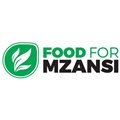“The only way to change Africa’s future is by making sustainable food systems a priority,” says Prof Lindiwe Sibanda, ahead of her keynote address at the historic first independent dialogue on media engagement in the United Nations Food Systems Summit.

The media’s role in shaping food systems will be discussed at an independent dialogue ahead of the United Nations Food Systems Summit. Pictured are Prof Lindiwe Sibanda from the ARUA Centre of Excellence in Sustainable Food Systems; Dr Brave Ndisale from the FAO; and Dr Naudé Malan from the University of Johannesburg.
Sibanda is the director and chairperson of the ARUA Centre of Excellence in Sustainable Food Systems at the University of Pretoria. She will deliver her address during a virtual discussion on Wednesday, 28 July with media professionals from across South Africa set to attend.
The dialogue is convened by SABC Education and Living Land, a popular SABC2 magazine programme, in partnership with the Agricultural Research Council (ARC), the Food, Agriculture and Natural Resources Policy Analysis Network (FANRPAN), Food For Mzansi and No-Line Communications.
‘An indictment on our entire food system’
“Media professionals from across the country are making food systems a top priority amid the Covid-19 pandemic,” says Nozipho Ndiweni, the producer of Living Land and event coordinator.
“Very rarely before have we even touched on the importance of communications and media at a time when, according to the 2021 State of Food Insecurity report, 118 million additional people are facing hunger because of the pandemic.”
The independent media dialogue leads up to the UN Food Systems Summit in September. It is part of a global series of pre-discussions in which thousands of people are shaping pathways towards food systems that are sustainable, resilient and equitable.
“It is an indictment on our entire food systems – from production to distribution and disposal – that in 2020, as many as 811 million men, women and children went without enough to eat,” says Dr Agnes Kalibata, the UN secretary-general’s special Envoy for the 2021 Food Systems Summit.
“Hunger on this scale is a symptom of a dysfunctional food system that buckles under pressure and abandons the most vulnerable first. We need systemic transformation, and this is the aim of the UN Food Systems Summit, but it will be up to member states to pave the way for the changes we urgently need.”
Registration: Click here to register for the event.
Top speaker lineup
Dr Sifiso Ntombela, chief economist at the National Agricultural Marketing Council, is confirmed as the facilitator for the independent dialogue on South African media engagement. Welcome remarks will be delivered by Danie Swart, genre manager: education and children at SABC Education, Dr Brave Ndisale, FAO country representative in South Africa; and Dr Thulasizwe Mkhabela, group executive: impact and partnerships at the ARC.
Furthermore, an A-list of speakers have been confirmed for the plenary sessions on media and communications engagement and case studies. Participating journalists and public relations experts will look at the following exemplary food systems.
- Social impact of the V&A Waterfront: Henry Mathys, senior manager of social impact will show how the popular tourist attraction has become a life-giving food system hub
- Johannesburg Fresh Produce Market: Litha Sabio, a strategic communications consultant for fresh produce markets, will unpack some of the food systems fundamentals. Whilst South Africa is food secure at national level, the country is still food insecure at household level as not all households have access to adequate food
- Izindaba Zokudla: A senior lecturer at the University of Johannesburg and the founder of the Soweto-based farmers’ lab, Dr Naudé Malan, will discuss the importance of seeing the 'system' in the food system.
“I guess the big question for us, as media professionals, is how we can help to transform the global food system,” says Ivor Price, Food For Mzansi co-founder and editor-in-chief. At the independent dialogue, he will speak on the importance of positioning the new face of South African agriculture in the greater food systems discussion.
“If there’s one thing we’ve learnt during the pandemic, it’s that people are grappling with emergency levels of acute hunger. At Food For Mzansi, we are looking forward to leading this important conversation.”
The media and communications engagement plenary session will focus on all the available methods of conveying food system messages. Other confirmed speakers include:
- Liza Bolhmann, the chairperson of the Agricultural Writers’ Association and communication business partner for Bayer Crop Scienc
- Ivor Price, editor-in-chief and co-founder of Food For Mzansi, on the importance of positioning the new face of South African agriculture in the greater food systems discussion
- Gugulethu Mahlangu, a Gauteng farmer and founder of #FarmSpaces, on engaging with the media as a farmer. Mahlangu has now also extended her popular #FarmSpaces live audio conversations in partnership with Food For Mzansi on Monday nights
- Mbali Nwoko, farmer and founder of Green Terrace, who is also breaking barriers as an entrepreneur, speaker, columnist and podcaster
There will also be break-away sessions on how the communications and media fraternity can help each other to improve the general understanding of food systems and promote broader participation in this critical process.
Registration: Click here to register for the event.











































